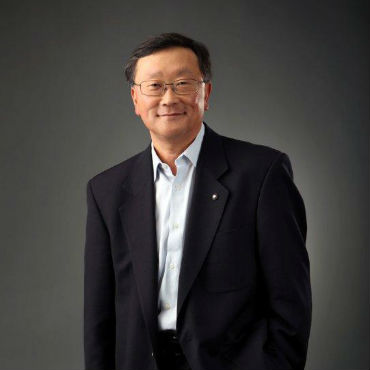BlackBerry boss strikes conciliatory tone on encryption

Like his Apple counterpart, BlackBerry CEO John Chen is opposed to weakening encryption but says the debate between law enforcement and tech firms has gotten too acrimonious.

CEO John Chen said BlackBerry's broad client base puts it in a "unique position to help bring the two sides of this debate together."
BlackBerry CEO John Chen is seeking middle ground in the ongoing debate between law enforcement officials and tech firms over end-to-end encryption.
While clearly against backdoors that allow cops and spies access to encrypted communications, Chen told FCW Dec. 16 that some of his competitors have said in effect, "'Whatever it is, I'm not going to help out in identifying and tracking or monitoring bad people and what they do.'" He added: "I think it's wrong."
Apple CEO Tim Cook has pushed back strongly on law enforcement officials' suggestions that there be some alternative to the default encryption offered on Apple devices. "We said no backdoor is a must," Cook said in October. "No one should have to decide between privacy or security. We should be smart enough to do both."
Chen is also against backdoors -- a term FBI Director James Comey dislikes because of its negative connotation -- but Chen seems to think a change in tone on the tech sector's part could help the two sides find common ground.
GPS coordinates and other data can help law enforcement agents track suspects without access to encrypted communications, Chen said. He spoke to FCW after his appearance at a Northern Virginia Technology Council event.
Security officials from Comey on down have warned of the perils of "going dark," which would effectively prevent them, even with a court order, from seeing the messages of suspects because of default encryption on mobile devices. Technologists and privacy activists have countered that any backdoor to encrypted communications could hurt the security of countless Internet users.
"Our privacy commitment does not extend to criminals," Chen wrote in a Dec. 15 blog post in which he argued that his company's public- and private-sector client base puts BlackBerry in a "unique position to help bring the two sides of this debate together."
Chen cited Telegram, which shut down use of the messaging service for sympathizers of the Islamic State group in the wake of the Paris terrorist attacks, as a firm that has successfully balanced privacy and security. He also lamented that some policymakers have considered weakening encryption.
"Frankly, it is surprising and unnerving that some national political leaders think that an encryption ban could even work on a technical basis," he wrote.
The Hong Kong-born executive was in Washington this week to drum up interest among federal customers for BlackBerry products. The Canadian firm has lost market share to competitors in a government mobility market that was once taken for granted as BlackBerry's own.
The company's federal contracts dropped from a high of more than $90 million in 2011 to about $40 million in 2014, according to a January Washington Post report that cited data from Govini.
Chen said he met this week with officials from the Navy and the departments of Defense, Homeland Security and Treasury.
"I came here this last week to make sure that they understand my strategy," he added.
Asked to share his pitch to federal agencies, Chen said, "We still provide the most secure platform from handset to server to messaging, and we have a lot more to offer than just simply 'I'm here managing your devices.'"
The old days of needing a BlackBerry device to use BlackBerry software services are gone, he added.
Chen pointed to the company's acquisitions of Good Technology and AtHoc as signs of momentum in the federal market, and he particularly touted AtHoc's emergency alert system. "A lot of agencies in town are using it," he said.


